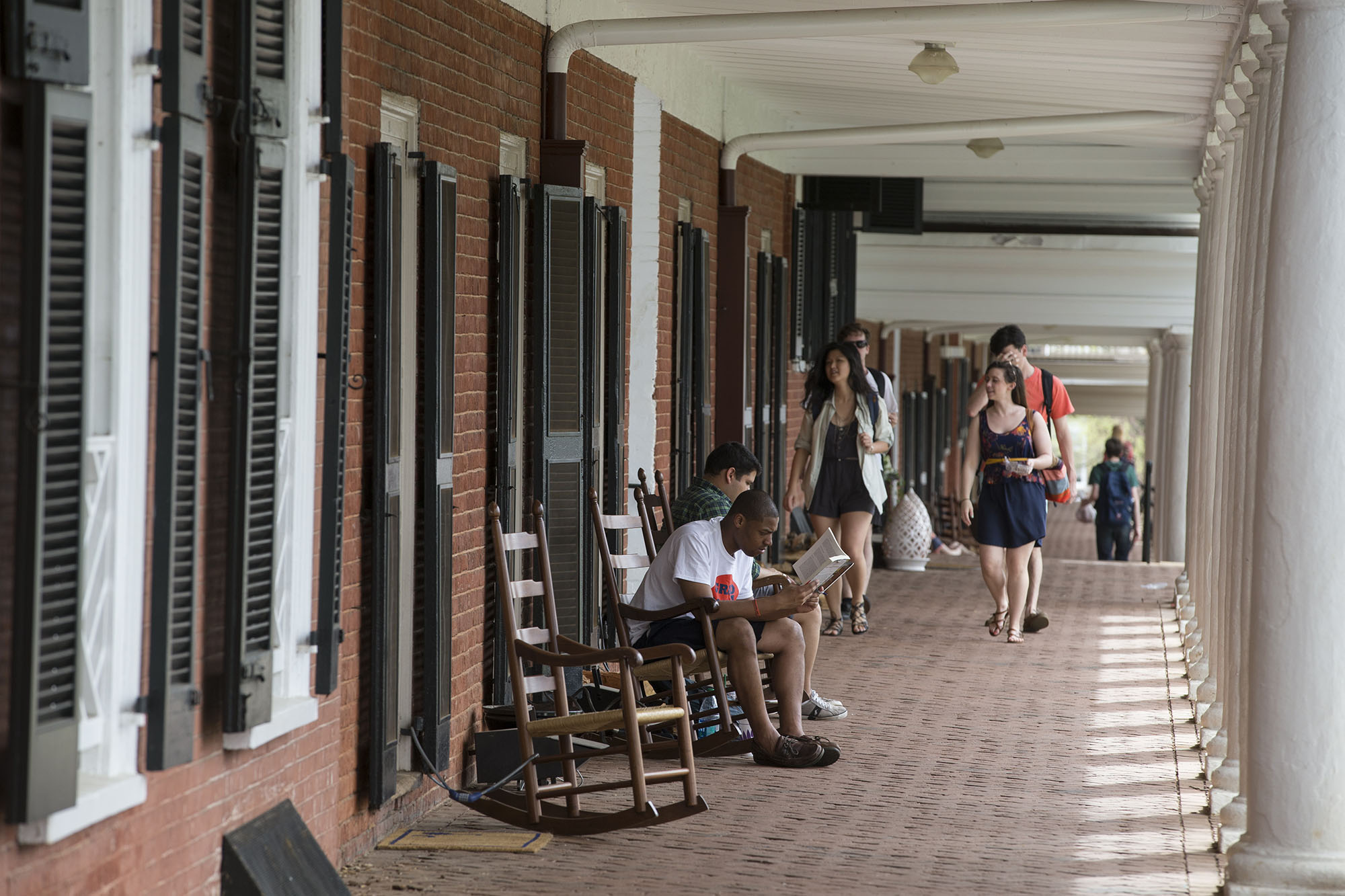The University of Virginia will launch one of its largest interdisciplinary degree programs to date this month. The new entrepreneurship minor is open to all undergraduate students and represents a strategic collaboration between multiple schools.
While many top-tier institutions have some kind of entrepreneurship program, U.Va. is among the first to offer a pan-University approach, rather than a curriculum hosted solely through a business school.
Many of the University’s participating schools, like the McIntire School of Commerce, the Frank Batten School of Leadership and Public Policy and the School of Engineering and Applied Science, already had some kind of entrepreneurship offering for their students. They teamed with the schools of Architecture and Education and the College of Arts & Sciences to broaden their course offerings and make a streamlined entrepreneurship curriculum.
“We’ve gone from multiple, distinct entrepreneurship efforts to one fully loaded program,” said David Touve, assistant professor of commerce and director of the Galant Center for Entrepreneurship.
Touve will be a point of commonality for all the new minor students, as his commerce class, “Startup,” is the first prerequisite. Beyond that prerequisite, students will be allowed some flexibility in the order of their curriculum.
Upperclassmen who have taken “Startup” as well as other entrepreneurship classes in the past may apply to the minor and use these courses to complete the program’s requirements before graduation.
In addition to its collaborative nature, the entrepreneurship minor is also unique in that it is a minor with concentrations: Students must decide whether to pursue a concentration in social entrepreneurship or technology entrepreneurship.
Christine Mahoney, an associate professor of public policy and politics, will direct the social entrepreneurship concentration. Mahoney, who has led the Frank Batten School of Leadership and Public Policy’s social entrepreneurship curriculum since 2012, has seen firsthand how much students want access to these kinds of classes and said she’s excited to expand opportunities to the wider student population.
“Close to 75 percent of millennials say they want a purpose-driven career, one where they can have a positive social impact,” she said. “We’ve had these courses at Batten for three years. We’ve gone from zero classes to 11, and from zero students to over 350 students enrolling.”
The Curry School of Education, too, has been working with social entrepreneurship ideas for several years through their youth and social innovation major. They’ll be contributing electives to the minor such as their education course, “What Innovators Do: Strategies to Transform the Lives of Youth.”
“Entrepreneurial thinking and action have a tremendous role to play in shaping organizations that serve youth, and in capturing the interests and talents of youth,” Catherine Brighton, Curry School associate dean for academics and students affairs, said. “We see design thinking, innovation, and entrepreneurship as a three-legged stool for building more effective programs.”
Bernie Carlson, professor and chair of the Engineering & Society Department, will lead the technology entrepreneurship concentration, which will cater to students interested in understanding how to create enterprises around technology and new products. They can develop their skills with courses like “Engineers and the Art of the Deal,” “Startup Operations” and the introductory course, “Technology Entrepreneurship.”
“We already had many of the pieces in place – we just had to bring them together with the other schools to make a unified focus,” the Engineering School’s associate director of technology entrepreneurship, Liz Pyle, said. The new entrepreneurship minor complements the school’s existing engineering business minor that currently enrolls more than 350 students.
With either concentration in entrepreneurship, students will gain experience that can help them launch their ideas, whether that’s with a startup of their own or as part of a larger team.
“Virtually all jobs out there now require workers to have some entrepreneurial spirit,” said Leonard Schoppa, associate dean for social sciences in the College of Arts & Sciences. “The College has been involved since the beginning because so many of our undergraduates want to complement their liberal arts studies with some kind of entrepreneurial education.”
Concepts like those taught in the Architecture School’s “Foundations in Design Thinking” course, for example, are meant to help foster the kind of problem-solving skills and expansive thinking that would be beneficial in any workplace environment.
“A design thinking approach is based on the idea that you enter a project asking questions, not providing answers,” said Anselmo Canfora, an associate professor of architecture. “A sound design process involves the end user at the earliest of stages of a project and builds empathy in relation to the end user’s needs and aspirations, it’s often referred to as a human-centered process. Additionally, the iterative design thinking process involves a number of stages including prototyping, testing and feedback loops focused directly on the user experience.”
As the minor continues to evolve and add new courses, the faculty expects that even more schools will join in the effort. The School of Medicine and the School of Nursing may assist with additional electives related to health care, while the School of Law can provide legal insight and services through the its Entrepreneurial Law Clinic.
Michael Lenox, the Darden School of Business’s associate dean for innovation programs and the academic director of the Batten Institute, sees his graduate school as the gateway to additional hands-on learning opportunities for undergraduates.
“We’re helping out with some of the experiential opportunities for students, in particular through the i.Lab. It’s another touch point for students in the minor who are interested in starting ventures and moving them forward,” he said.
Returning students interested in declaring the new minor this fall have until Sept. 15 to do so. The form and further information about the requirements can be found here.
Media Contact
Article Information
August 18, 2015
/content/new-program-allows-any-undergrad-minor-entrepreneurship

